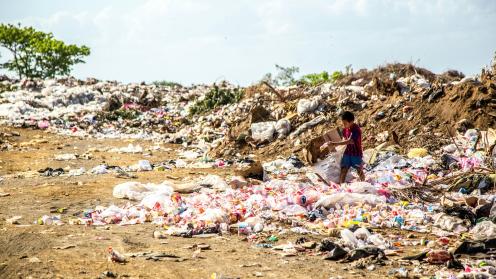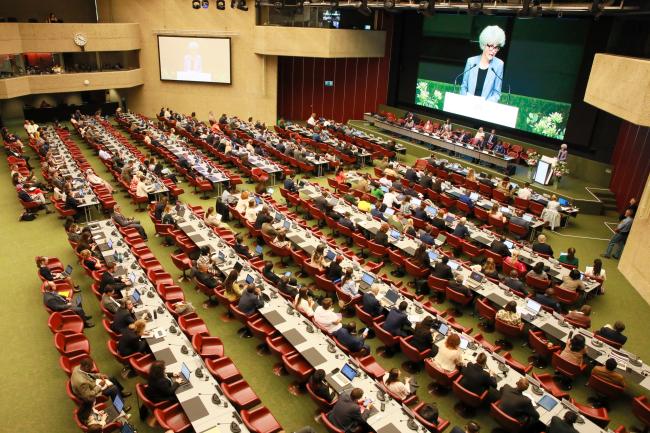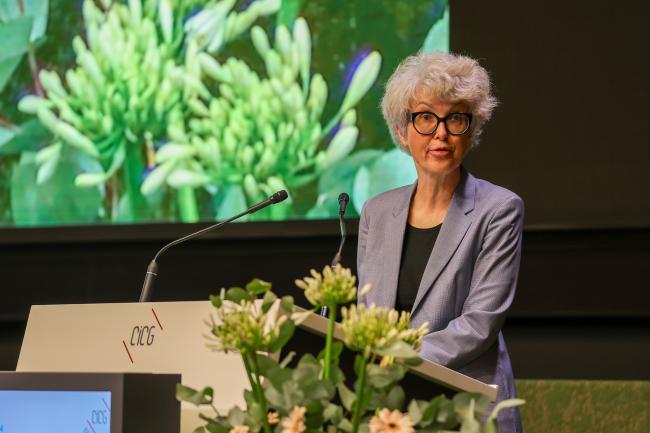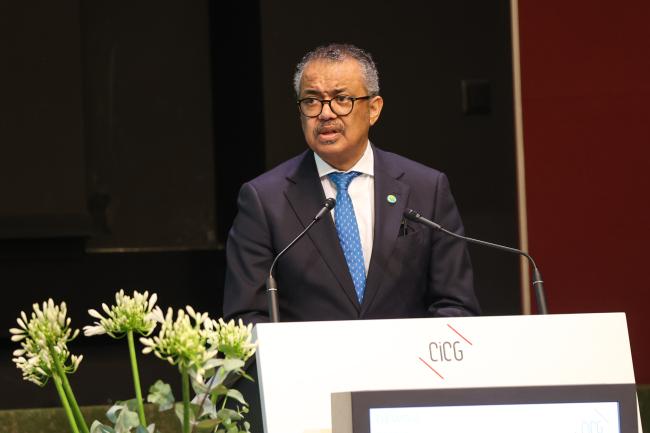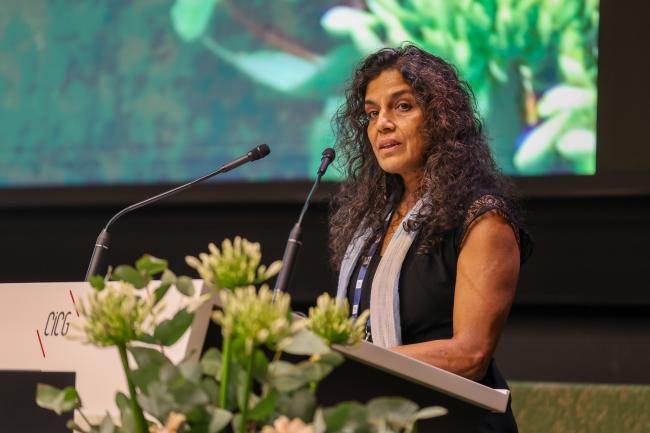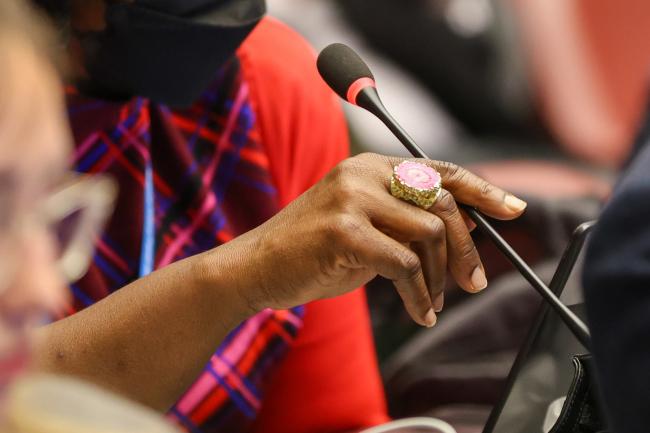At the outset of this final meeting, many stressed that a strong scientific body can inform better chemicals and waste policy making. Opening speeches relayed hope that negotiators could complete their recommendations to realize a new panel capable of achieving the public and policy salience of the Intergovernmental Panel on Climate Change (IPCC) and Intergovernmental Science-Policy Platform on Biodiversity and Ecosystem Services (IPBES).
Want to dig deeper into today's talks? Read the full Earth Negotiations Bulletin daily report.
Toxic pollution caused an estimated 1.8 million deaths in 2019, an increase of 66 percent since 2000. Because of the strong connection between health and environmental issues, many welcomed the announcement from the World Health Organization’s Director-General Tedros Adhanom Ghebreyesus that the WHO “stands ready” to co-host the new panel’s Secretariat with the UN Environment Programme (UNEP). That said, two Member States later expressed reservations about involving WHO and its World Health Assembly.
To launch detailed work, member states established four contact groups:
- Contact Group 1 will finalize a “foundational document” that sets out the structure for the science-policy panel, including its institutional design;
- Contact Group 2 will address how the panel will determine its work programme and will prepare and agree to its deliverables;
- Contact Group 3 will discuss draft rules of procedure, draft financial procedures, and draft conflict of interest and disclosure policies; and
- Contact Group 4’s work involves setting out how to establish the panel from these building blocks. This will be done by an intergovernmental meeting, based on the recommendations developed by this group.
The Major Groups, representing a broad range of stakeholders, set out a common vision for a conflict of interest policy, and membership on future committees, among other issues. There were additional calls for the new panel to be guided by human rights, intergenerational equity, and recognition of Indigenous and other forms of knowledge.
It’s clear that there are many issues to sort out this week, as delegates sat down to work on text as much as possible in the coming days. Two outstanding questions remain largely unaddressed: what to call this new panel and where should it be located?
All ENB photos are free to use with attribution. For this event, please use: Photo by IISD/ENB | Mike Muzurakis
To receive free coverage of global environmental events delivered to your inbox, subscribe to the ENB Update newsletter.
Plenary Session

From L-R: Tedros Adhanom Ghebreyesus, Director-General, WHO; Katrin Schneeberger, Director of the Federal Office for the Environment, Switzerland; and Ulf Björnholm, Secretariat
Contact Groups
Between Sessions

From L-R: OEWG Chair Gudi Alkemade; Tedros Adhanom Ghebreyesus, Director-General, WHO; Maria Neira, Director, Environment, Climate Change and Health, WHO; and Tessa Goverse, Principle Coordinator, Secretariat
